If you’re new to the world of recreational vehicles, then you may be wondering what an inverter does. An inverter is an essential piece of equipment in any RV, as it converts the DC power from the batteries into AC power that can be used to run appliances and other electronics. In this article, we’ll discuss the different types of inverters available and provide some tips on choosing the right one for your needs.
Table of Contents
What is an RV Inverter?
When shopping for an inverter, you’ll also want to pay attention to the wattage rating. This is the maximum amount of power that the inverter can provide at one time. To prevent damage, the inverter will automatically shut off if you try to use more power than it can handle.
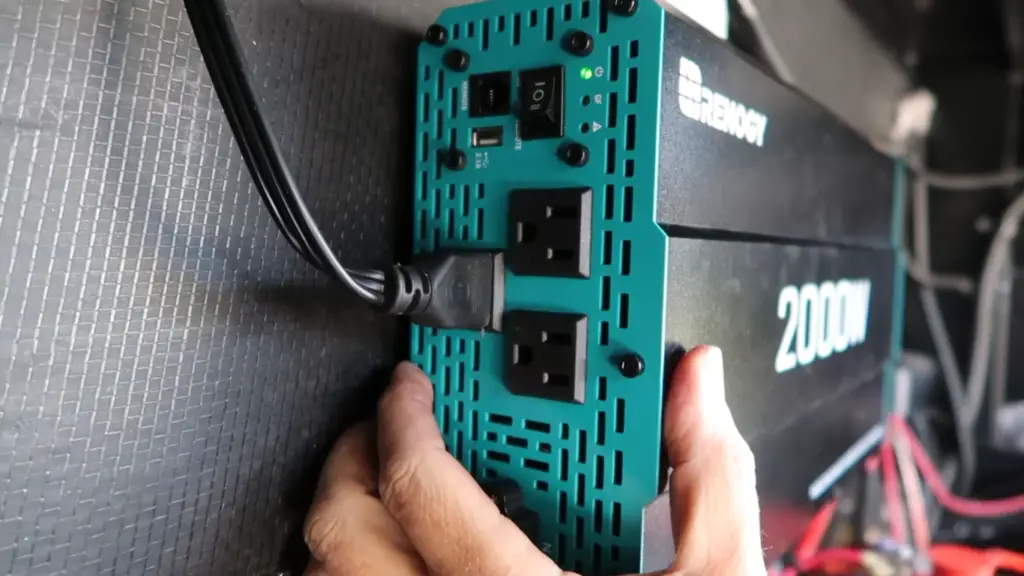
For most RVs, we recommend getting an inverter with a wattage rating of at least 2000 watts. This will give you enough power to run multiple devices at the same time without overloading the inverter.
If you’re planning on using your RV inverter for high-powered appliances like a hair dryer or coffee maker, you’ll need an inverter with a higher wattage rating. If you want to use these devices, we recommend an inverter with a wattage rating of 3000 watts or more.
Once you’ve chosen the right inverter for your RV, it’s time to install it. Most inverters will come with detailed instructions on how to do this, but we’ve also written a helpful guide that you can follow.
Types of RV Inverters
There are three main types of inverters: modified sine wave, pure sine wave, and true modified sine wave. Modified sine wave inverters work with most appliances, but can cause problems with some sensitive electronics. Pure sine wave ones are more expensive, but provide cleaner power that is less likely to damage your electronics. True modified sine wave inverters offer the best of both worlds, providing clean power at a reasonable price.
When choosing an RV inverter, you will also need to decide how many watts you need. The wattage required depends on the appliances you plan to run off of the inverter. A general rule of thumb is to choose an inverter that is at least double the wattage of the appliance you plan to run. For example, if you want to run a coffee maker that requires 1000 watts, you will need an inverter that is 2000 watts or more. [1]
Now that you know the basics of RV inverters, let’s take a look at some of the different types available on the market.
Taking Care of your RV Batteries
One of the essential things you can do to prolong the life of your RV batteries is to keep them clean. Every few months, it’s a good idea to clean the terminals with baking soda and water. This will help prevent corrosion and keep your batteries working efficiently.
It’s also important to regularly check the fluid levels in your batteries. If they start to get low, it’s an indication that they’re not being charged properly and could be headed for failure. Adding distilled water to the cells will help keep them performing at their best.
Finally, make sure you’re not overloading your electrical system. Your RV inverter is designed to handle occasional spikes in demand, but if you’re constantly running high-wattage appliances, you could be putting too much strain on the system. This could lead to premature failure of your batteries or inverter.
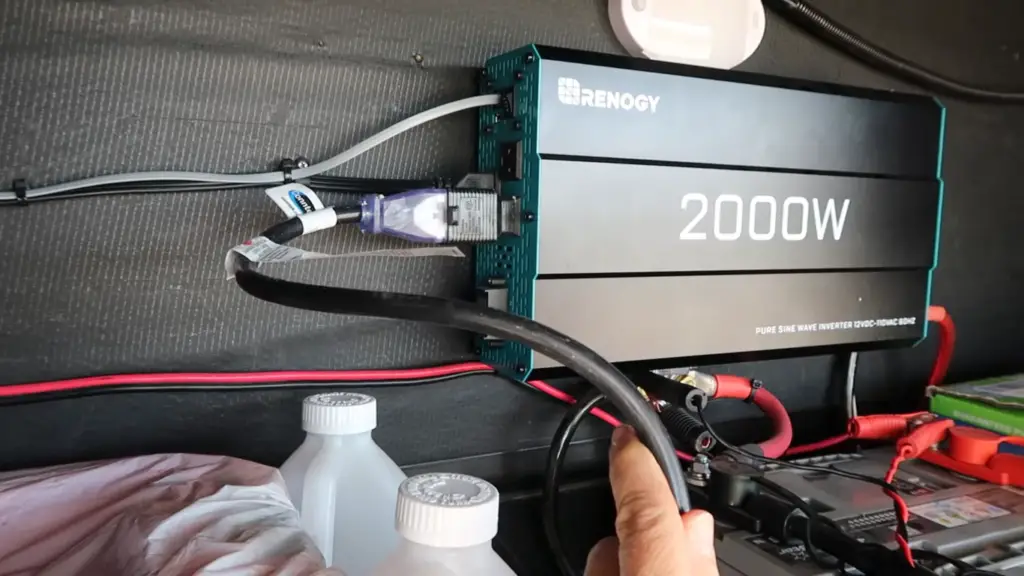
Picking an RV Inverter for your RV
It’s time to start shopping for the right one for your rig. Here are a few things to bear in mind as you shop:
- Power needs: How much power do you need to run your RV? This will help you determine the size of the inverter you need.
- Size and weight: Make sure the inverter you pick is tiny enough to fit in your RV and light enough that it won’t increase your vehicle’s weight.
- Ease of installation: Some inverters are easier to install than others. If you’re not comfortable with electrical work, choose an inverter that’s easy to install.
Price
Of course, price is always a factor when shopping for an RV inverter. But remember, you get what you pay for. A cheap inverter may not have all the features you need or be as durable as a more expensive one.
By keeping these factors in mind, you can narrow down your choices and find the best RV inverter for your needs.
Wattage
One more thing to consider when shopping for an RV inverter is wattage. Inverters come in a variety of wattages, from small units that only provide a few hundred watts to larger ones that can provide several thousand watts.
Size
Size is another important consideration when shopping for an RV inverter. You’ll need to ensure the inverter you choose is small enough to fit in your RV. And if you’re planning to install it yourself, you’ll want to make sure it’s not too large or heavy for you to handle.
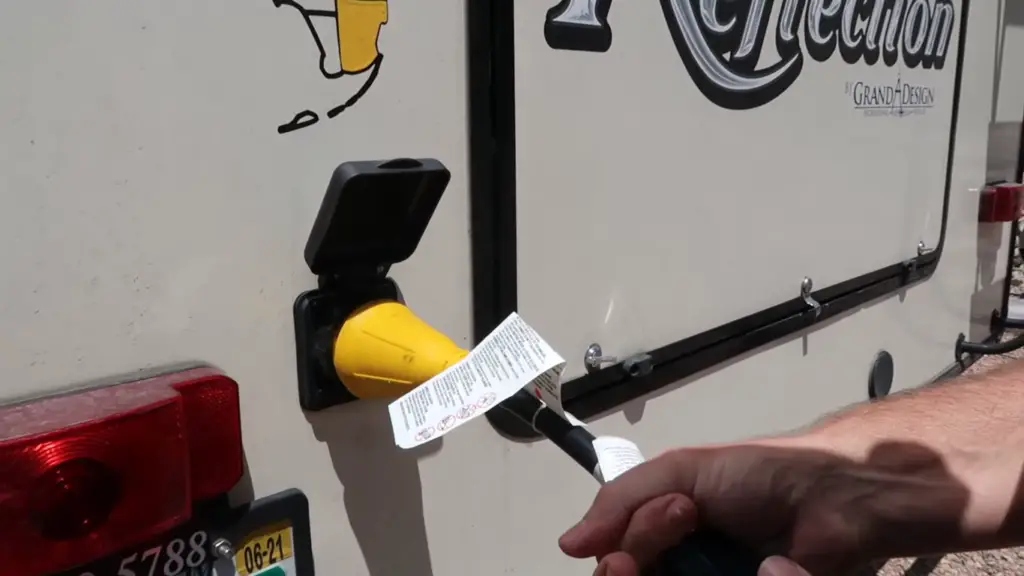
Outlets
Finally, take a look at the number and type of outlets on the inverter. You’ll want to ensure it has enough outlets to power all your RV’s needs. And if you have special electrical needs, like running a TV or laptop, ensure the inverter you choose has the right kind of outlet for that.
Ease of Installation
Installing an RV inverter can be a challenging task, especially if you’re not comfortable with electrical work. If you’re not sure you can install the inverter yourself, look for one that’s easy to install. Some units come with instructions and even video tutorials to help make installation easier.
Safety Features
When shopping for an inverter, safety features are always a top priority. Inverters are designed to protect you and your RV from electrical hazards. Look for an inverter with thermal protection, short circuit and overvoltage protection. These features help to prevent fires and damage.
Another safety feature to look for is a low battery shutdown feature. This feature automatically shuts off the inverter when the batteries get too low, preventing damage to the batteries. [2]
Some inverters also have a built-in generator, which can be a lifesaver in an emergency situation. If you’re ever stranded without power, you’ll be glad you have a generator on hand.
Difference Between an RV Inverter and RV Converter
An RV Inv. is a device that changes DC into AC.
RV converters also change DC into AC, but they do it by converting the voltage from 12 volts to 120 volts. This lets you plug in standard household appliances like coffee makers and hair dryers. Most RVs are equipped with a converter, but you may also install one if necessary.
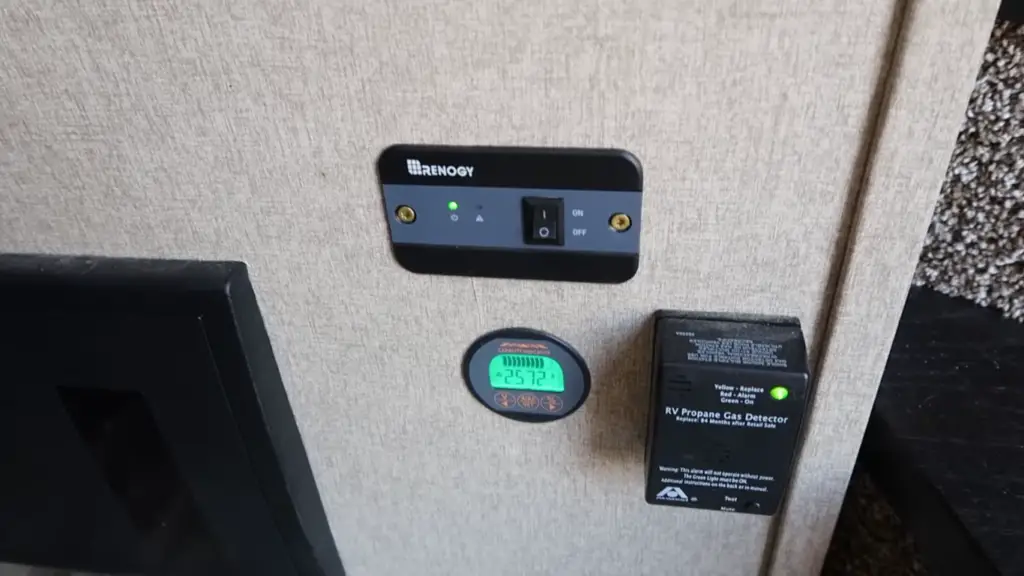
There are a few things to bear in mind when using an Inv. or Conv. in your RV. They generate heat, so make sure there’s adequate ventilation. Second, they can drain your battery quickly, so it’s important to monitor the power level and only use them when necessary. Lastly, never run an extension cord from the inverter/converter to another outlet as this can cause a fire. [3]
Pure Sine Wave vs Modified Sine Wave
Pure sine wave inverters produce an AC current that is identical to the one supplied by your home’s electrical outlets. This means that it can power any type of appliance or electronic device without damaging it. Modified sine wave ones are less expensive but they also produce a lower quality AC current. This can damage some sensitive electronics, so it’s important to check whether your devices are compatible before using one of these inverters.
One last thing to keep in mind is that inverters can get hot, so make sure to mount them in a well-ventilated area.
How to Use an RV Inverter
RV inverters are a great way to get power while on the road.
Once you’ve chosen the right size inverter, it’s time to install it. Most RV inverters come with detailed instructions, so follow those carefully. In general, you’ll need to connect the positive and negative wires from the inverter to the corresponding terminals on your RV batteries.
Now it’s time to start using your inverter. To do this, simply plug any appliance or device into the Inv. and turn it on.
Should I Leave My RV Inverter On All the Time?
Leaving the RV Inv. on all the time is not necessary. The Conv. will take care of charging your batteries and running your 12-volt appliances.
If you are boondocking, you will want to conserve battery power as much as possible. In this case, it is best to turn off the Inv. when you are not using it. You can also use a solar panel or generator to charge your batteries and run your appliances.
There are some RVs that have an automatic transfer switch (ATS) that will automatically switch from shore power to the Inv. when shore power is lost. This is a great feature if you want the convenience of having the Inv. always on, but it is not necessary.
What Size Inverter Do I Need for My RV?
This is a common question with various answers. The size of the Inv. depends on how you plan to use it and what kind of electronics you’ll be powering.
If you’re only looking to run small devices like laptops or phones, then a smaller inverter should suffice. However, if you want to power larger appliances like a TV or microwave, then you’ll need a bigger inverter.
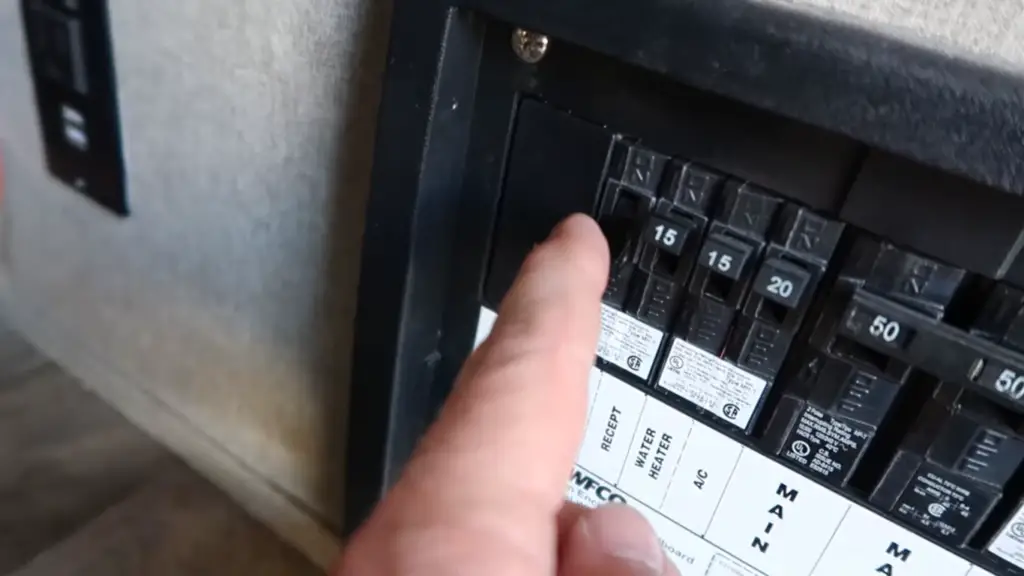
You can also find hybrid inverters that offer both AC and DC power, which can come in handy if you have some devices that require one type of power and others that require the other.
Is an RV Inverter Worth it?
The simple answer is yes! An RV inverter can be a great investment, providing many benefits to your travels. Let’s take a more in-depth look at what an RV inverter is and how it can help you on the road.
Inverters can be used to power any type of appliance that uses AC power, including televisions, laptops, and even small appliances like microwaves. Many RVers use their inverters to run a CPAP machine at night.
One thing to keep in mind is that running appliances off of an RV inverter can drain the batteries quickly, so it’s important to have a good battery charging system in place. Solar panels are a great option for keeping your batteries charged while dry camping.
FAQ
Should I leave my RV inverter on all the time?
It depends on how you are using it. If you are only using it to charge your batteries, then you can turn it off when the batteries are full. However, if you are using it to power appliances, then you will need to leave it on.
If you plan on doing a lot of boondocking (camping without hookups), then you will need a larger inverter to power your RV appliances. A rule of thumb is to multiply the watts of the appliance by three to get the minimum inverter size you need. [4]
You also need to consider the amount of battery power you have. A larger inverter will drain your batteries faster than a smaller one.
Does an inverter charge RV batteries?
No, an inverter does not charge RV batteries. However, some inverters have a built-in battery charger that can be used to charge RV batteries when plugged into shore power or a generator.
If your inverter doesn’t have a built-in battery charger, you can use a separate battery charger to charge your RV batteries. There are many different types and sizes of battery chargers available, so it’s important to choose one that is compatible with your RV’s electrical system.
It’s also important to note that charging your RV batteries with an inverter or battery charger will only work if the voltage of the power source is higher than the voltage of the batteries.
Can you run an RV without an inverter?
Theoretically, you could. However, it would be incredibly inconvenient and uncomfortable. Most RVs these days are equipped with at least one 120-volt AC outlet. This is the standard household current that you use to power everything from your lights to your microwave. An inverter converts the DC battery power in your RV into this standard AC power so that you can use all of your appliances without issue.
Without an inverter, you would be stuck using battery-powered devices or propane-powered appliances. Neither of these options is ideal, especially if you’re planning on being on the road for a while. Battery-powered devices tend to be less powerful and have shorter run times than their AC counterparts. And propane appliances can be expensive to operate and require more maintenance than AC appliances. [5]
So, while you technically could run your RV without an inverter, we wouldn’t recommend it.
How do you use an inverter in a motorhome?
There are a few different ways that you can use an inverter in your RV. The most common way is to use it to power things like your laptops, phones, and other small electronics. You can also use it to run larger appliances like a coffee maker or a microwave.
Another way that you can use an inverter is to charge your RV batteries. This is especially useful if you are dry camping and don’t have access to hookups. You can also use it to run a fan or other small appliance while you are charging your batteries. [6]
Finally, you can also use an inverter to power tools like a drill or saw. This is helpful if you need to do some work on your RV or if you are camping and need to do some basic repairs.
Useful Video: How to Use Your RV Inverter
Conclusion
An inverter is a great addition to any RV. It can be used for a variety of different things and can really help to make your life on the road easier. If you are considering adding an inverter to your RV, ensure to check out all of the different options that are available to you. There is sure to be one that will meet your needs and help you enjoy your time on the road even more. Thanks for reading! We hope this guide was helpful.
References
- https://www.thervgeeks.com/what-is-an-rv-inverter/
- https://blog.cdnrg.com/blog/choosing-an-inverter-for-your-rv
- https://www.guaranty.com/blog/whats-the-difference-between-an-inverter-and-converter/
- https://lifeonroute.com/should-an-rv-inverter-be-left-on-all-the-time/
- https://www.thervgeeks.com/what-is-an-rv-inverter/
- https://www.outdoorsy.com/blog/rv-inverter

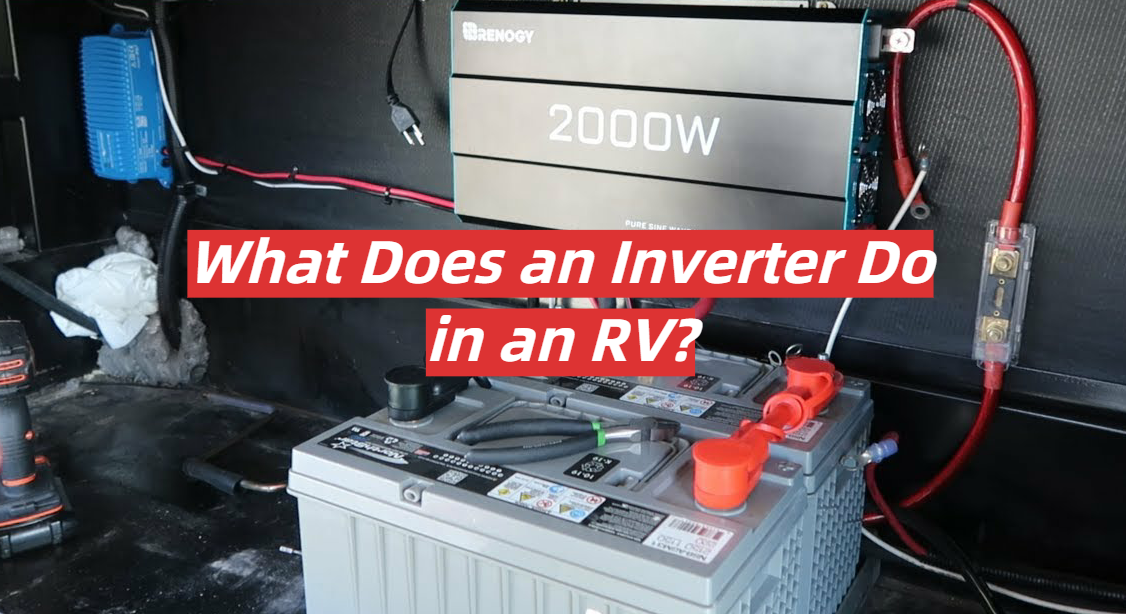

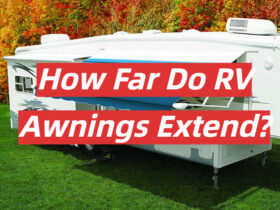
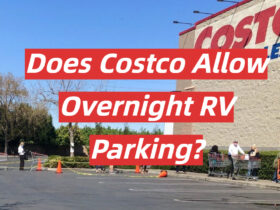
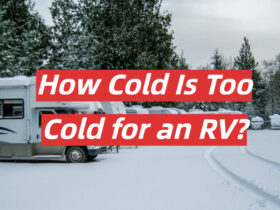
Leave a Reply